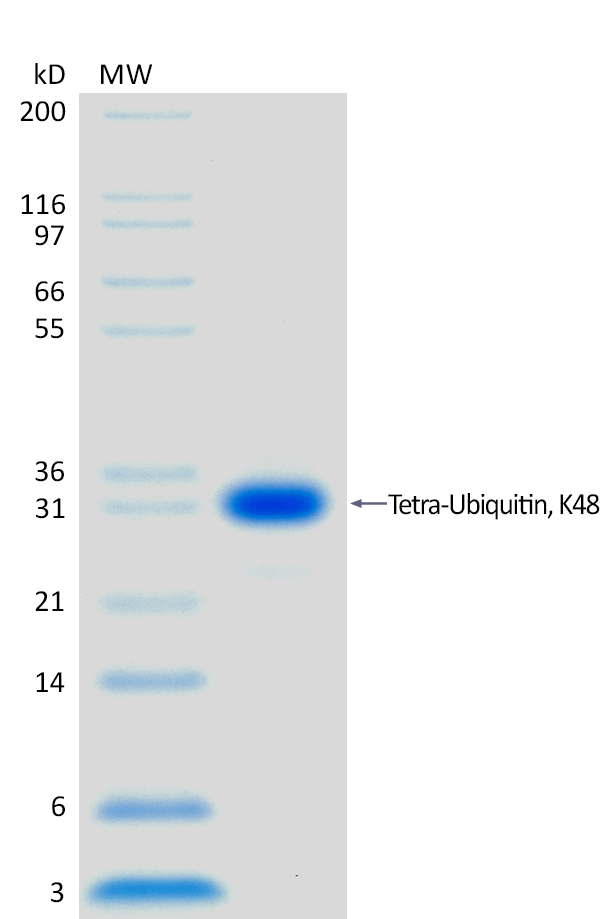 2 μg K48-linked Tetra-Ubiquitin run on 4-12% SDS-PAGE gel under reducing conditions, then visualized with Colloidal Coomassie Blue Stain.
2 μg K48-linked Tetra-Ubiquitin run on 4-12% SDS-PAGE gel under reducing conditions, then visualized with Colloidal Coomassie Blue Stain.For Research Use Only (RUO)
Eddins, M.J., et al., (2007) J Mol Biol 367:204-211. PMID 17240395
Trempe, J-F., et al., (2010) Acta Cryst F 66:994-998. PMID PMC2935213
Lai, M-Y., et al., (2012) BBA-Mol Cell Res 1823:2046-2056. PMID 22542781
Grice, G. L., and J. A. Nathan (2016) Cell Mol Life Sci 73:3497-3506. PMID 27137187